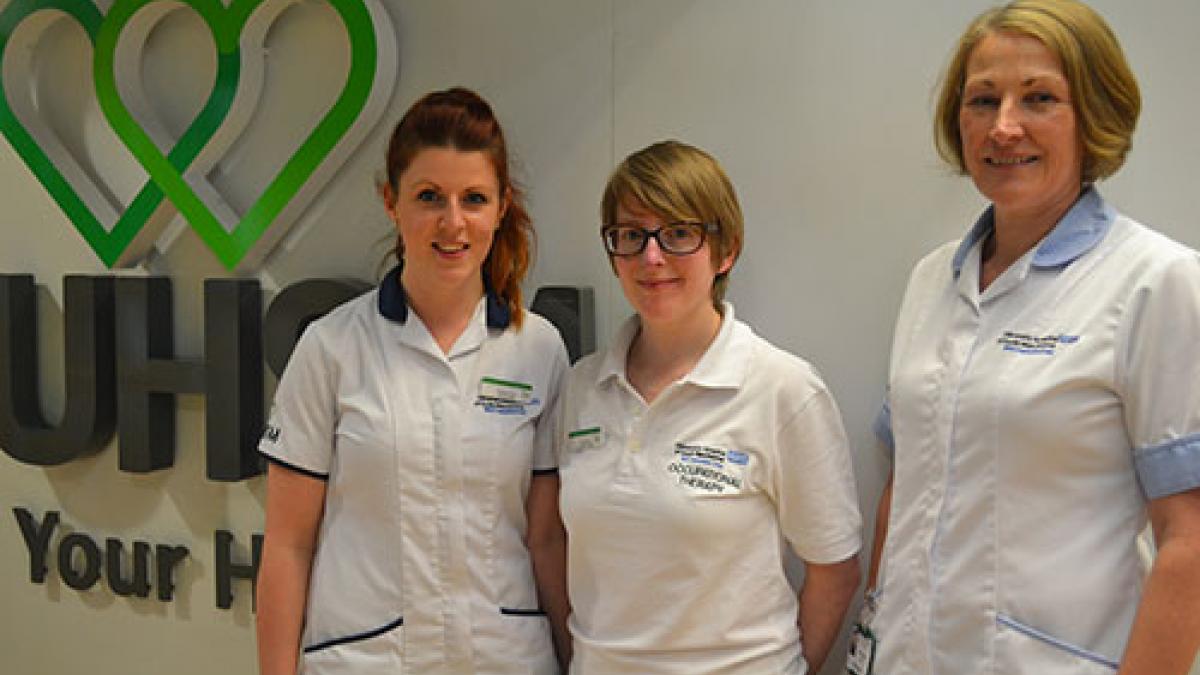Physios working with the older persons assessment and liaison service (OPAL) at University Hospital of South Manchester NHS Trust’s A&E department have helped to cut repeat emergency admissions by 34 per cent.

OPAL team members Heather Owen, Victoria Parkes and Carron Lane.
When the OPAL service was launched two years ago, it operated on just two days a week. It now runs from Monday to Friday with a bleep system alerting staff at weekends.
OPAL employs a dedicated multidisciplinary team of physiotherapists, occupational therapists and geriatricians. Trained in conducting assessments, they provide specialist care to patients identified as being frail.
Team members carry out swift reviews and assessments when patients arrive at the hospital. Their aim is ensure patients receive care and support at home, and prevent further hospital admissions.
Heather Owen, an OPAL physiotherapist, told Frontline: ‘When frail older people arrive at A&E they are triaged through to the OPAL team, or we can have people who have been seen by the medical team first.
‘Rapid response physios can see them within three days of going home or nurses can go in to see them the same day.’
Band 6 physio Ms Owen gave a presentation about OPAL to the Geriatric Emergency Medicine Conference in Leicester on 24 May. Delegates included consultants, advanced health practitioners and physios working in emergency care in the UK and Switzerland.
‘Similar services have been started in other hospitals, but there is definitely a need for more of this type of service in other emergency departments,’ Ms Owen said.
The dramatic reduction in A&E readmissions is based on an assessment of 59 patients who used the service last August. Ms Owen’s told conference delegates that cutting the A&E workload saved an estimated £5,358 during the month of the evaluation. Scaled up, it would mean an annual saving of £64,000.
‘The physios go through the assessment with patients. We know when someone can cope at home and when to involve the discharge nurse, who can help us get carers in place,’ said Ms Owen.
She said that is a role for a more experienced physio, adding: ‘You have to make those decisions and there is always a risk that the patient may have to return, but you have to try.’
Find Out More
Number of subscribers: 2